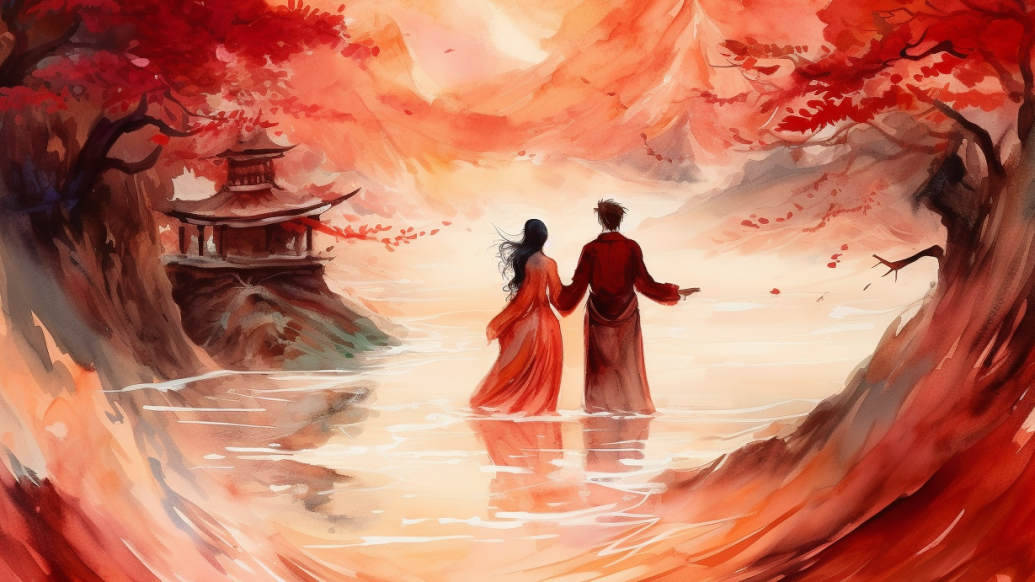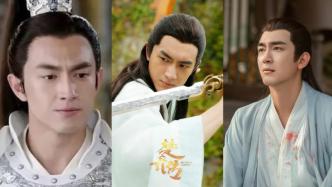

Recently, the term "assembly line ancient dramas" has surged in popularity on social media. Faced with the endless repetition of plots, identical makeup and costumes, and the same combinations of actors, viewers have expressed their frustration, declaring they are "sick of it."
It's undeniable that "ancient dramas" are currently one of the hottest genres in film and television. Many rising stars have made a name for themselves in this arena, amassing a large fanbase. Meanwhile, so-called "soon-to-explode" stars and newcomers are eager to grab a slice of the pie from these dramas.
While it's understandable that the booming market attracts more creators and investors, it should never justify blind imitation and shoddy production.

Screenshot of user comments
Netizens have even summarized some classic tropes from the current "assembly line ancient dramas": darkening eye makeup to create villainous characters, using bangs to portray youthfulness, ethereal characters dressed in white, and unappealing makeup showing spots. Consequently, celestial beings in the realm of heaven are often caught in the same outfits, beautiful actresses are donning fake eyelashes to play tough characters, and actors might reveal plot twists simply through their eye makeup, even before embodying the emotional depth required of the scene...
However, these standardized makeup styles fail to highlight character traits or help actors convey emotions, leaving the audience feeling detached and sensing a lack of authenticity.
Today's ancient dramas overly "worship" combinations of major intellectual properties and popular stars, with S+ level dramas promoted by various platforms often sticking to this formula. In fact, it seems that from investors to platforms, actors, and even fans, there exists a tacit agreement on the feasibility of this model.
Major film and television companies are bulk purchasing web novel IPs, while fans are placing their bets on which character designs are appealing and possess room for development, capable of "lifting actors to stardom." Although they claim, "no engagements without official announcements," the comments sections of celebrity studios frequently echo with demands.
With consensus both within and outside the industry, just how powerful is this “combined punch”?
Looking solely at this year’s data, several S+ level ancient dramas that previously generated much buzz have seen lackluster viewership, falling short of expectations. Some platforms have candidly stated that in the first half of this year, the entire drama market deviated from anticipated hits, and surprisingly, innovative works have been bringing in more excitement.
When blockbuster hits deviate from expectations, it only takes an underdog to create contrasting success, highlighting that so-called universal formulas are far from "universal."
The "assembly line ancient dramas" that viewers frequently criticize are simply attempts to replicate successful formulas from previous blockbusters, as if the audience could easily be manipulated and would accept empty shells devoid of sincerity.
For instance, a few years ago, "time-travel dramas" surged, where protagonists constantly bounced between ancient and modern times; recently, “novel-inhabiting” themes became popular, with characters beginning to "awaken" and resist their authors’ attempts to alter their fates; "palace intrigue dramas" evolved into "domestic strife dramas," still revolving around conflict; and now, with the rise of "strong female lead dramas," every leading lady starts to awaken, become independent, and pursue careers...
These prior successes should have established high standards for the industry, encouraging future works to strive for excellence, rather than providing "reference" material for others to shortcut and replicate. Ultimately, a thriving film and television market requires a diversity of works.
At the same time, the uninteresting "assembly line ancient dramas" not only feature dull, repetitive plots but also a cast of familiar faces that viewers have grown weary of, as this group seems to be engaged in some mysterious rearrangement.

Screenshot of user comments
Recently, an image circulated online showing the names of familiar actors with various connections branching out to other actors. Perhaps this is why ancient dramas abound every year, yet familiar viewers consistently feel a sense of boredom, questioning, "Why is it always the same group of people?"
Actors trapped within these "assembly line ancient dramas" also find it difficult to deliver standout performances. They transition from one familiar set to the next, involved in similar stories, sporting the same styles of makeup, to the extent that sometimes, viewers cannot even distinguish which drama they are performing in merely by looking at stills.
Ultimately, the term "assembly line" should never prefix artistic creations; instead, how to heal the hearts of viewers wounded by "assembly line ancient dramas" should be a topic for every film and television practitioner to contemplate and address.
